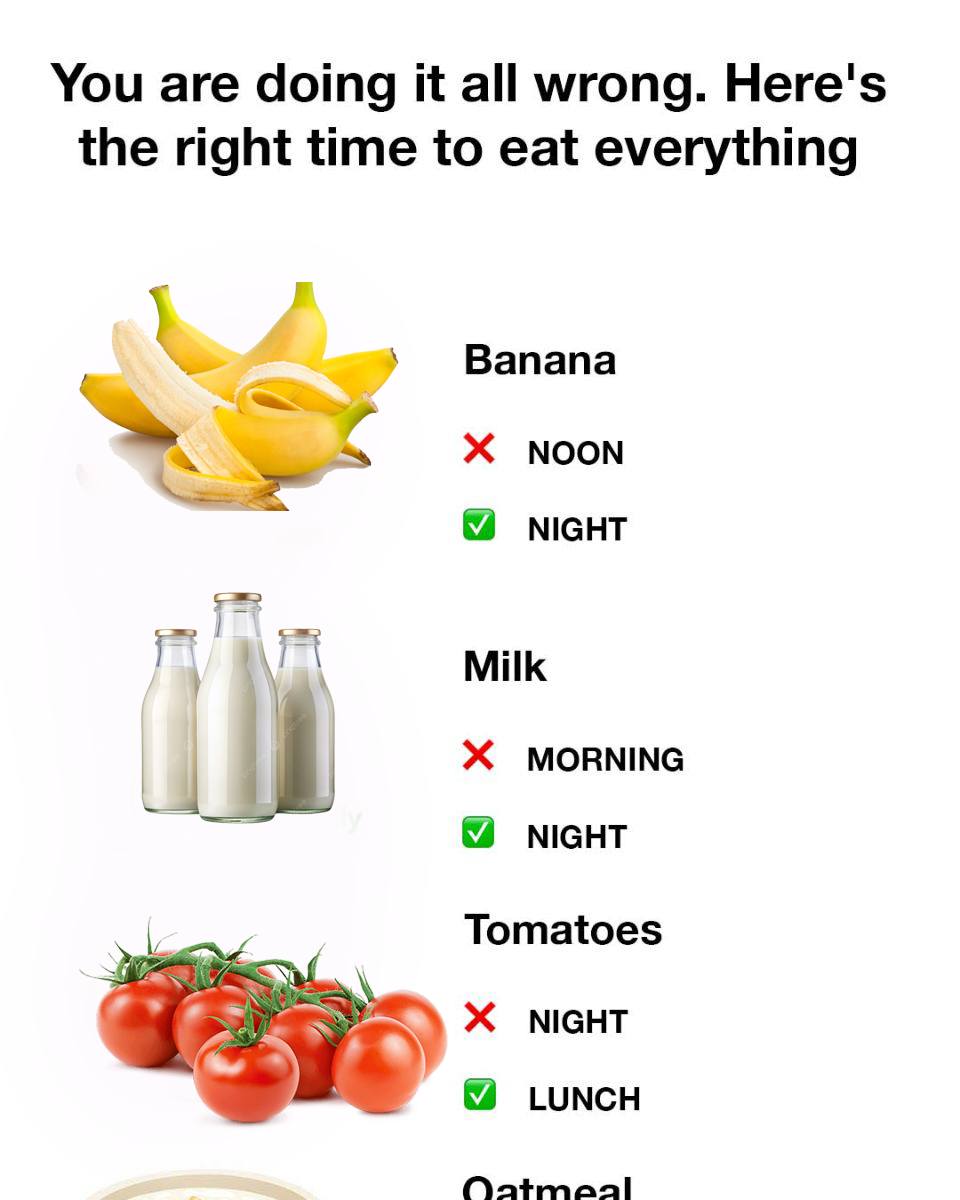ADVERTISEMENT
You Are Doing It All Wrong: Here’s the Right Time to Eat Everything
We’ve all been told when to eat, but did you know the timing of your meals could make all the difference to your health and well-being? Whether you’re aiming to boost your metabolism, enhance digestion, or simply feel better throughout the day, eating at the right time is key. It’s not just about what you eat, but when you eat it that can impact your energy levels, mood, and even weight loss efforts.
In this article, we’ll reveal the right times to eat everything—from your breakfast to your late-night snacks—so you can optimize your eating habits for better health.
1. The Right Time for Breakfast: Within an Hour of Waking Up
We’ve all heard that breakfast is the most important meal of the day, but did you know that the timing of your breakfast can make all the difference?
When to eat: Ideally, you should eat breakfast within the first hour of waking up. This helps to kickstart your metabolism and balance blood sugar levels after a night of fasting. Eating within this window helps regulate cortisol levels (the stress hormone) and stabilizes your energy for the day ahead.
Why it works: Eating within an hour of waking boosts your metabolism and provides your body with essential nutrients after a long fasting period. A good breakfast should include protein, healthy fats, and whole grains to keep you feeling full and energized throughout the morning.
Example: Try a balanced meal like oatmeal with almond butter and fresh berries, or scrambled eggs with spinach and avocado on whole-grain toast.
2. The Right Time for Lunch: 4–5 Hours After Breakfast
If you’ve had a satisfying breakfast, you should wait 4 to 5 hours before eating lunch. This helps to prevent overeating and ensures that your body has time to process the nutrients from your earlier meal.
When to eat: Aim to eat lunch around midday or early afternoon, depending on when you had breakfast. This will keep your metabolism running smoothly and prevent you from getting too hungry or reaching for unhealthy snacks.
Why it works: When you space out meals like this, your body is better able to absorb nutrients and stay satisfied. It also helps prevent the post-lunch energy slump that many people experience when they eat too early or too late.
Example: Try a balanced lunch like a quinoa salad with grilled chicken, mixed greens, and a drizzle of olive oil and lemon. Or, a wrap filled with lean turkey, veggies, and hummus for a lighter, portable option.
3. The Right Time for Dinner: 3–4 Hours Before Bed
Eating dinner too late can disrupt your digestion, affect your sleep, and even lead to weight gain. To optimize your evening routine, aim to eat dinner 3 to 4 hours before going to bed.
When to eat: Ideally, finish eating dinner by 7 or 8 p.m., depending on when you go to bed. This gives your body enough time to digest the meal before you settle in for the night.
Why it works: Eating dinner too late can affect your body’s ability to process food and burn calories while you sleep. By eating earlier, you give your body ample time to digest and metabolize food before resting, leading to better digestion, improved sleep quality, and less late-night snacking.
Example: Opt for a lean protein, such as grilled fish or chicken, along with roasted vegetables and a small serving of brown rice or quinoa. This will provide the nutrients you need without leaving you feeling heavy before bed.
4. The Right Time for Snacks: Between Meals or Before Exercise
Snacking can be a healthy way to keep your energy levels up throughout the day, but timing is everything. Instead of reaching for chips or cookies, choose snacks that help fuel your body when you need it most.
When to eat: Aim to snack between meals, especially if you’re feeling hungry or need an energy boost before a workout. Ideal times for snacks are mid-morning (around 10:30 a.m.) or mid-afternoon (around 3:00 p.m.).
Why it works: A well-timed snack can prevent overeating during your next meal and keep your blood sugar stable. If you’re working out, a light snack before exercise (about 30 minutes to an hour before) provides the fuel your body needs for optimal performance.
Example: Try an apple with almond butter or a small handful of nuts and seeds. These healthy snacks are rich in protein, fiber, and healthy fats, keeping you satisfied and energized.
For Complete Cooking STEPS Please Head On Over To Next Page Or Open button (>) and don’t forget to SHARE with your Facebook friends
